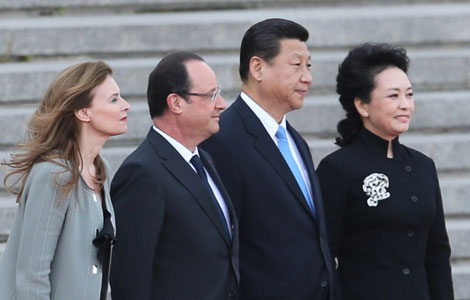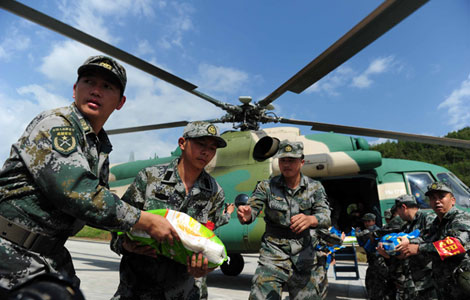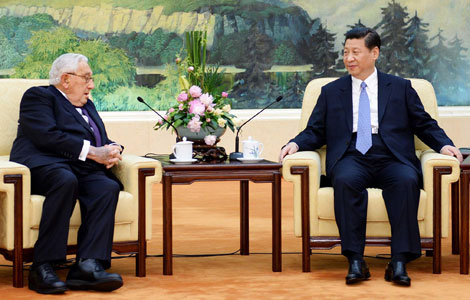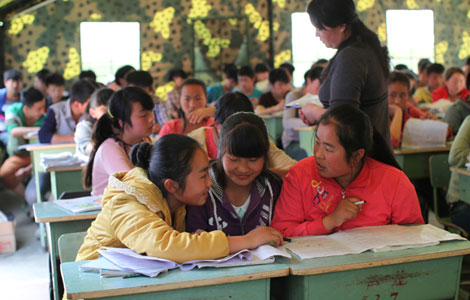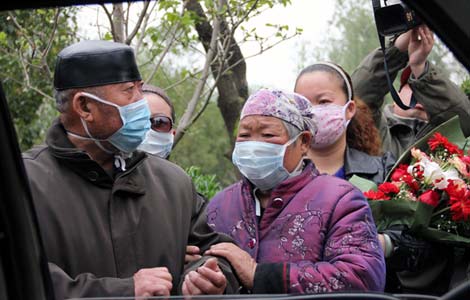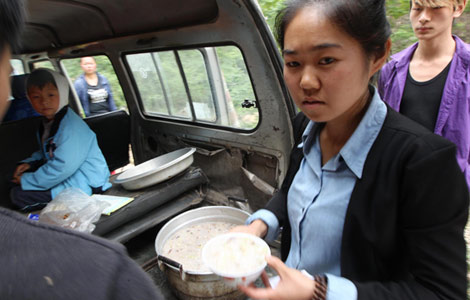Abe beautifying aggression
Updated: 2013-04-26 08:17
(China Daily)
|
||||||||
With his irresponsible remarks and acts, Japanese Prime Minister Shinzo Abe seems determined to challenge international law and force his country apart from its Asian neighbors.
When asked about his government's position on an apology made by former prime minister Tomiichi Murayama for Japan's colonial rule and aggression in Asia, Abe said he was doubtful of the exact definition of "aggression". "The definition of what constitutes aggression has yet to be established in academia or in the international community," he said at a parliamentary meeting on Tuesday.
These words reveal Abe's undisguised beautification of Japan's aggression against its neighbors and transmit the message that he will not budge back from his stubborn stance on Japan's militaristic past.
It might be Abe's logic that there is no need for Japan to face up to the history or feel remorse for the crimes of its past militarism if Japan's wartime acts are not defined as "aggression".
Abe has been the first Japanese chief of government to express open opposition to the Murayama statement, issued in 1995 at the 50th anniversary of the end of World War II, which acknowledged that, through its colonial rule and aggression, Japan "caused tremendous damage and suffering to the people of many countries, particularly to those of Asian nations". His predecessors knew that supporting the statement was a prerequisite if Japan was to maintain good ties with its wartime victims, such as China and the Republic of Korea, and obtain their possible forgiveness.
Abe's show of brazen revisionism came only days after he made an offering at the notorious Yasukuni Shrine, where 14 Class-A war criminals are honored among Japan's war dead. Three cabinet ministers, including Taro Aso, Japan's deputy prime minister, also visited the shrine, followed by some 168 Japanese lawmakers, the largest collective visit made by Japanese politicians in years. The visits drew strong condemnations from China and the ROK.
With his latest remarks on the definition of "aggression", Abe has challenged common understanding of international law and added fuel to the tensions simmering between Japan and its neighbors. And by questioning the legitimacy of Japan's post-war peaceful constitution, saying it was drafted by "occupying forces", he is openly questioning the international order established after World War II.
Abe's ultra-rightist tendency, if unchecked, will lead Japan to a dead end, as it will never be treated as a normal country if it continues on this path.
(China Daily 04/26/2013 page8)
Most Viewed
Editor's Picks
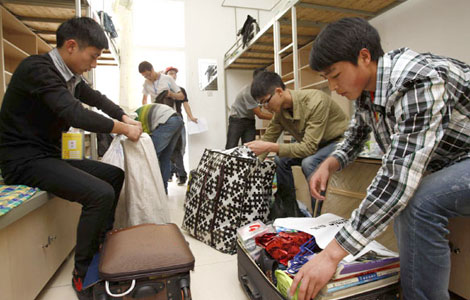
|

|

|

|

|

|
Today's Top News
Phone bookings for taxis in Beijing
Chinese consumers push US exports higher
Seoul delivers ultimatum to DPRK
Boston bombing suspects intended to attack NYC
No let up in home price rises
Bird-watchers undaunted by H7N9 virus
Onset of flood season adds to quake zone risks
Vice-president Li meets US diplomat
US Weekly

|

|
